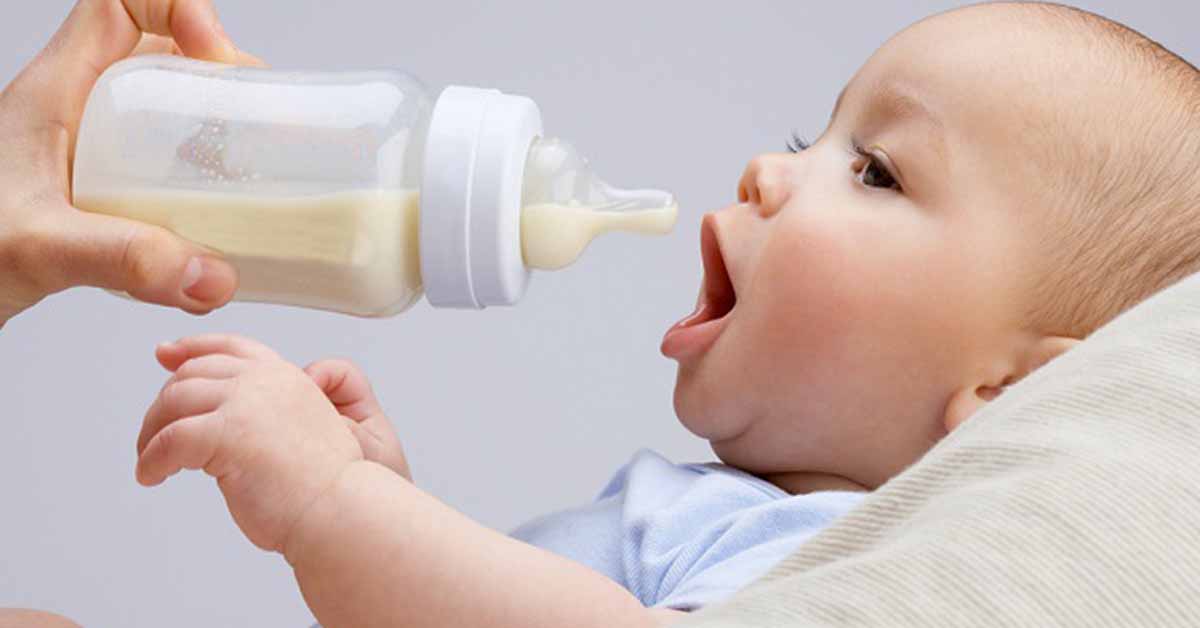- According to a new study, some formula firms are attempting to discourage new parents from nursing by disseminating inaccurate information about the reality of breastfeeding.
- There are a variety of reasons why a parent decides to breastfeed rather than formula feed their child, but marketing, like with other consumer conventions and attitudes, may play a significant influence.
- Researchers discovered that five makers of baby formulae utilized wording on their websites that discouraged breastfeeding.
Every family must make a personal and individual decision on whether to breastfeed or formula feed their child.
However, according to a new study, some formula firms are attempting to discourage new parents from breastfeeding by disseminating false information about the reality of nursing.
According to experts, there is no one-size-fits-all approach to nourishing your child, and parents should never be made to feel as though the road they pick is the wrong one.
“Many women are unable to breastfeed due to medical reasons, so they must rely on formula,” said Dr. Jennifer Wu, an OB-GYN at New York's Lenox Hill Hospital. “While we believe that nursing is the best option, some women have difficulty doing so, and each infant requires a unique approach.”
What the research discovered
The study examined information and representations of breastfeeding versus baby formula feeding on manufacturer websites, headed by experts at the NYU School of Global Public Health.
There are a variety of factors that influence whether a parent decides to breastfeed or use formula, but marketing, like with other consumer conventions and attitudes, may play a significant impact.
Three big brands and two organic formula businesses were investigated by the researchers. The message on the manufacturers' websites, they discovered, utilized language that discouraged breastfeeding.
The researchers found all the web pages linked to feeding a child breast milk or formula through text, picture, or both for each of the five websites. They also looked at signals and behaviors that might hinder breastfeeding.
During the data collection, a total of 545 screenshots were taken, with an additional 287 pictures taken during a later data collection.
In all, 678 screenshots from the five websites contained material that was intended to discourage breastfeeding. Forty percent of the information focused on the difficulties of nursing, while 44 percent of the websites mentioned the advantages of formula over breastfeeding or breast milk.
When it comes to marketing, this is nothing new; every company wants their product to be the go-to product.
However, when it comes to the nutrition and health of babies, more balanced marketing that highlights the very real advantages of nursing, rather than denigrating it, maybe the better option.
The research looked at a variety of brands.
Wu performed a brief search of one of the companies involved, Enfamil, and found no evidence of unfavorable remarks against nursing on their website. Enfamil's website even suggests that supplementing with formula might help parents nurse for longer.
Breast milk is the best nourishment for babies, according to Gerber's website. “Given the substantial data supporting the health advantages of breastfeeding, promoting the beginning and continuation of breastfeeding should be a basic goal of healthcare professionals,” they write.
“As a customer, you must understand how advertising firms operate. They brag about how great their product is for this and that. “However, you, your kid, and your pediatrician may need to sort out what is truly best for your infant,” Wu added.
Is it harmful to newborns to drink formula?
Certainly not.
And, as Wu pointed out, many parents are physically unable to nurse their children. They are not putting their child's health at risk by feeding him or her formula.
“Some women may have undergone breast surgery or a breast reduction, or they may be having problems producing milk. “Trying to sort it out as a new parent may be frustrating,” she added.
Formulas for infants are a healthy alternative to breast milk. In fact, some formulas include vitamins and minerals that are not found in breast milk.
It's also practical since it allows parents to split feeding responsibilities. Formula-feeding parents may follow their own diets and not have to worry about what they eat or drink.
Is it true that nursing is best for babies?
Breastfeeding is preferable, at least for the first six months, according to most healthcare specialists.
This is because nursing mothers may provide antibodies to their babies, which can help them fight infections, avoid allergies, and protect them from chronic diseases.
Lactose, protein, and fat — all components of breast milk — are easily absorbed by a newborn. Breast milk also provides essential vitamins and minerals for infants. Vitamin D is the one exception. In the first two months and up to a year, the American Academy of Pediatrics recommends using a vitamin D-fortified formula.
When breast milk and infant formula are combined, they can help your baby obtain the nourishment he or she needs.
“When it comes to feeding their kid, every lady has a distinct approach,” Wu noted. “What matters is that the infant is well-nourished and healthy.”

Post a Comment